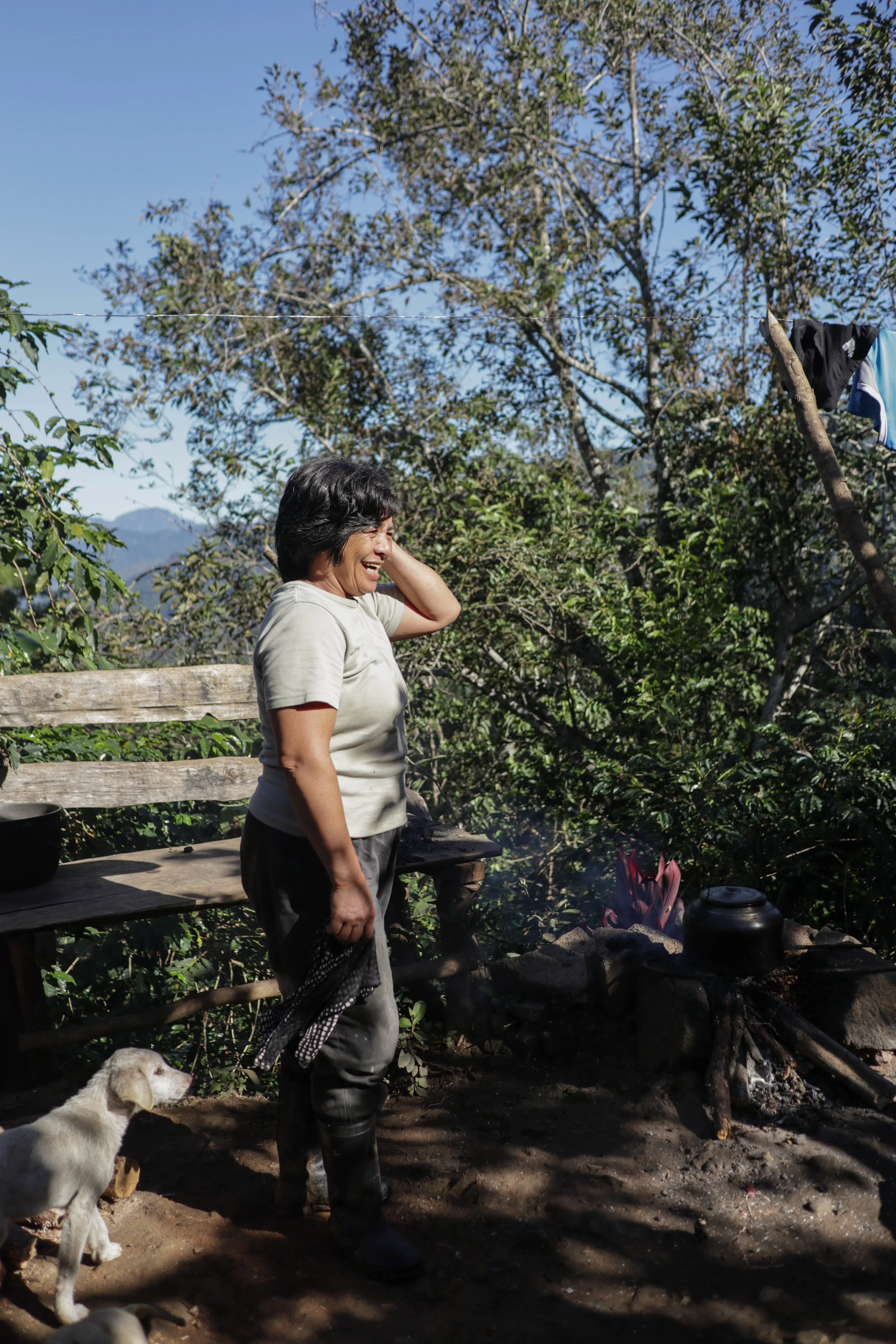The first thing you notice about Benguet is the view. With the dramatic landscape of it’s massive, rolling hills, it looks like something out of an adventure novel. The mountains, shrouded in their cloaks of white fog, rest like sleeping giants in the fresh air. We arrive just at sunset, and the earth is bathed in rose-gold light. Tere pauses for a moment to observe it from a nearby cliff.
“I stop every time,” she explains. It’s not hard to see why.
The second thing you notice, once the drive down the slope is finished, are the farmers. The men congregate outside, smiling shyly as we pass, petting the soft coats of the dogs that saunter around them. Auntie Asthrine has a light, musical voice and wide grin. Everyone here is called Auntie or Uncle affectionately, we are like some long-lost relatives. She is wrapped in a large purple jacket on the couch in the house that she and Uncle built themselves. It is beautiful and rivals the view, full of warm colors and pictures. The place feels like a happy and familiar home. Coffee cherries dry on the bamboo racks that they have painstakingly crafted outside.
Raised drying beds
These are the faces behind your beans.
For Auntie Asthrine, coffee means more than just income. It stands as a symbol of heritage. “My parents grew coffee plants, but not for the market,” she smiles and nods, remembering fondly. “We only recently had the idea to start selling it in 1993. It is something of a tradition, to keep coffee plants for the household in the backyard when you get married. I still have mine from my wedding day, it is 25 years old now. Our oldest tree!”
Auntie Asthrine
Auntie Asthrine tells me that work here can be hard, but you can tell that she holds pride in what she does. We introduce new drying processes to them every year, constantly improving the taste and quality of the coffees. As always, picking up on new techniques that can be more labor intensive are tricky, but the rewards of better beans are worth it. “The new processes of separating, fermenting, and drying allows us to sell our coffees at a higher price than our previous methods,” she tells me. Each new harvest season brings with it new knowledge, and new techniques to bring into practice.
Past the half-mile jungle hike to Naguey, another farmer, Auntie Melia, agrees. “Harvest season is always the most difficult,” She explains to me. Auntie Melia tells jokes with a boisterous laugh and wears her hair short. It suits her.
Auntie Melia
“We lacked the manpower without Kalsada and weekends are hard,” Sometimes the rest of the family must pitch in to help. To her right sits a little girl, peering up at us bashfully. “I have grown coffee, as my parents before me did, my entire life,” Auntie tells me with a grin, folding her arms across her chest. The space is full of people and movement, but there is always room for one more at the table. She gives us boiled sweet camote and passionfruit. There is a sense of family here, of belonging.
As we begin this new harvest season, we reflect on the great things we have achieved this year. Through the exceptional hard work of our farmers in Sitio Belis and One/Zero Design, we managed to create two new drying houses! Through our learning experiences with the rainy season last year, we were able to come up with new solutions and thrive, producing better quality beans year after year.
We invite you to purchase the last of 2017’s beans while you still can! December 18th is our last roast date, get your blend and/or single origin coffees just in time for Christmas and New Years. Makes a perfect present for the caffeine lover in your life! We have a limited supply available.
Ashley Kline is an author and college student from Scottsdale, Arizona. She moved from the American Southwest to the Philippines in the summer of 2017, and has fallen in love with the coffee culture of Manila. Under the mentorship of her knowledgable supervisors at Kalsada, she hopes to one day become a specialty coffee aficionado and spread ethically sourced coffee practices around the world.








